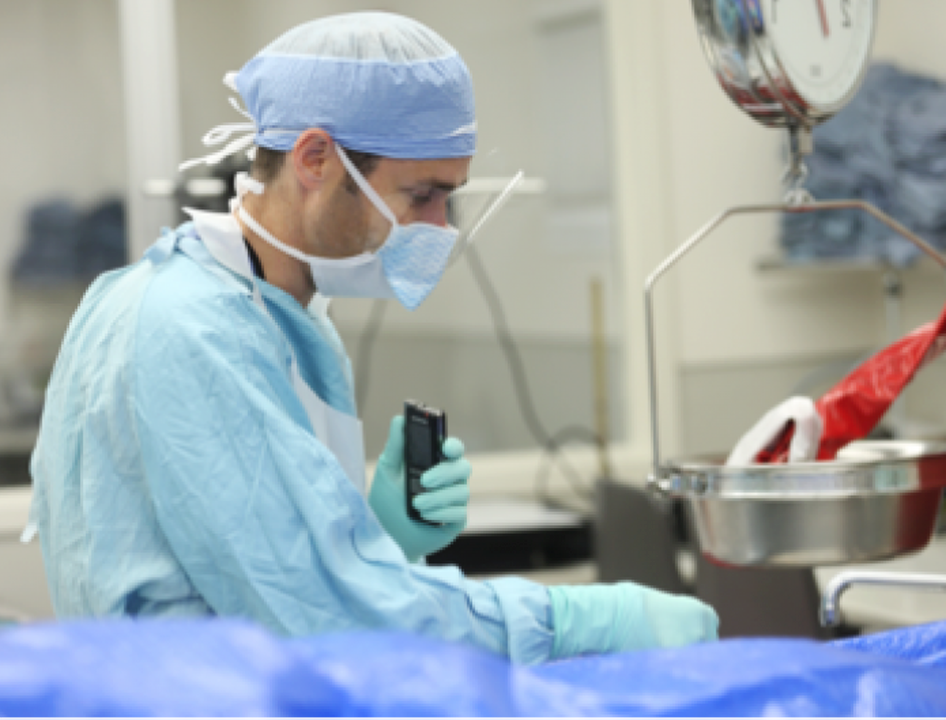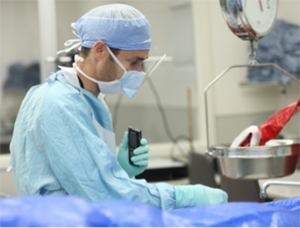Forensic pathology is a branch of medicine that focuses on investigating the cause of death in cases that involve criminal activity or suspicious circumstances. It combines the principles of pathology and forensic science to determine the manner and cause of death through autopsies and the analysis of physical evidence. Forensic pathologists play a crucial role in the criminal justice system by providing expert opinions and testimony based on their findings. Their work helps bring justice to victims and ensures that the truth is revealed in criminal cases.
Forensic pathologists are often seen as the detectives of the medical field. They work closely with law enforcement agencies and other forensic experts to analyze evidence, identify potential causes of death, and reconstruct the events leading up to a person’s demise. Their expertise extends beyond autopsies, as they may also be involved in crime scene investigation, toxicology analysis, and consultation with other medical professionals and legal authorities.

Photo by aafs.org
Forensic pathology requires a unique skill set that combines medical knowledge with investigative techniques. It is a demanding and intellectually stimulating field that requires a keen eye for detail, critical thinking skills, and the ability to maintain objectivity in the face of emotional and disturbing situations. Now that we have a better understanding of what forensic pathology entails, let’s explore the education and training required to become a forensic pathologist.
Education and training required to become a forensic pathologist
Becoming a forensic pathologist is a long and rigorous process that requires a significant investment of time and effort. The educational journey begins with a bachelor’s degree in a science-related field. While there is no specific undergraduate major required, most aspiring forensic pathologists choose to major in subjects such as biology, chemistry, or forensic science. During their undergraduate studies, students should focus on taking courses that provide a strong foundation in the sciences, as these will be vital for success in medical school.
After completing their bachelor’s degree, aspiring forensic pathologists must attend medical school. Medical school typically takes four years to complete and consists of a combination of classroom instruction, laboratory work, and clinical rotations. During this time, students gain a comprehensive understanding of human anatomy, physiology, pathology, and other medical disciplines. They also have the opportunity to explore different specialties and determine if forensic pathology is the right fit for them.
Following graduation from medical school, aspiring forensic pathologists must complete a residency program in anatomical pathology. This residency typically lasts for five years and provides hands-on training in pathology, including the performance of autopsies, the interpretation of laboratory tests, and the analysis of surgical specimens. During this time, residents work closely with experienced pathologists and gain invaluable experience in the field.
Once the residency program is completed, aspiring forensic pathologists must then pursue a specialized fellowship in forensic pathology. This fellowship provides additional training specifically focused on the forensic aspects of pathology, including the investigation of deaths, the collection and analysis of evidence, and the preparation of expert reports for legal proceedings. The fellowship usually lasts for one year and helps aspiring forensic pathologists develop the necessary skills and knowledge to practice as independent forensic pathologists.
Steps to becoming a forensic pathologist
Now that we understand the educational and training requirements, let’s break down the steps to becoming a forensic pathologist in more detail:
- Obtain a bachelor’s degree: As mentioned earlier, aspiring forensic pathologists should complete a bachelor’s degree in a science-related field, such as biology, chemistry, or forensic science.
- Attend medical school: After completing their undergraduate studies, aspiring forensic pathologists must attend medical school, which typically takes four years to complete.
- Complete a residency program: Following graduation from medical school, aspiring forensic pathologists must complete a residency program in anatomical pathology. This residency usually lasts for five years and provides hands-on training in pathology.
- Pursue a fellowship in forensic pathology: Once the residency program is completed, aspiring forensic pathologists must pursue a specialized fellowship in forensic pathology. This fellowship typically lasts for one year and provides additional training in the forensic aspects of pathology.
It’s important to note that the timeline for completing these steps may vary depending on individual circumstances and the specific requirements of each educational institution. However, on average, it takes around 13 years to complete the necessary education and training to become a forensic pathologist.
How long does it take to become a forensic pathologist?
As mentioned earlier, becoming a forensic pathologist typically takes around 13 years of education and training. This includes four years of undergraduate studies, four years of medical school, five years of residency in anatomical pathology, and one year of fellowship in forensic pathology. It’s important to note that these timelines are approximate and can vary depending on individual circumstances, educational institutions, and training programs.
While the road to becoming a forensic pathologist may be long and challenging, the rewards of this career make it all worthwhile. Forensic pathologists play a vital role in the criminal justice system, providing expert opinions and helping to uncover the truth in criminal cases. Their work can have a significant impact on society by ensuring justice for victims and holding perpetrators accountable for their actions.
Challenges and obstacles in the path to becoming a forensic pathologist
While the journey to becoming a forensic pathologist is rewarding, it is not without its challenges and obstacles. Here are a few common challenges that aspiring forensic pathologists may face:
Academic rigor
The educational path to becoming a forensic pathologist requires a strong academic foundation and a commitment to continuous learning. Medical school and residency programs can be demanding, both intellectually and emotionally, and require dedication and perseverance.
Competitive nature of the field
Forensic pathology is a highly specialized field, and competition for residency and fellowship positions can be intense. Aspiring forensic pathologists must demonstrate exceptional academic performance, research experience, and a genuine passion for the field to stand out among their peers.
Emotional toll
Dealing with death and investigating violent crimes can take an emotional toll on forensic pathologists. The nature of their work exposes them to distressing and traumatic situations, which can have long-term psychological effects. It is essential for forensic pathologists to have strong coping mechanisms and access to support systems to maintain their mental well-being.
Work-life balance
The demanding nature of the profession can make achieving a healthy work-life balance challenging. Forensic pathologists may be required to work irregular hours, including nights, weekends, and holidays, to respond to emergencies and perform autopsies. Balancing personal commitments and professional responsibilities can be a constant challenge.
Despite these challenges, the field of forensic pathology offers unique opportunities for personal and professional growth. The satisfaction of helping to solve crimes, unravel mysteries, and bring justice to victims is what drives many aspiring forensic pathologists to overcome these obstacles and pursue their passion.
Job prospects and salary of a forensic pathologist
The job prospects for forensic pathologists are generally favorable, with a steady demand for their expertise in both public and private sectors. Forensic pathologists can find employment in government agencies, such as medical examiner’s offices and crime laboratories, as well as in academic institutions, hospitals, and private forensic consulting firms. They may also have opportunities to work with international organizations or as independent consultants.
The salary of a forensic pathologist can vary depending on factors such as experience, geographic location, and the nature of the employing organization. On average, forensic pathologists can expect to earn a competitive salary, reflecting the specialized nature of their work and the level of expertise required. According to the U.S. Bureau of Labor Statistics, the median annual wage for physicians and surgeons, including forensic pathologists, was $409,665 in May 2020.
It’s important to note that salary should not be the sole motivator for pursuing a career in forensic pathology. The rewards of this profession go beyond monetary compensation and lie in the satisfaction of making a difference in the lives of individuals and communities through the pursuit of justice.
Skills and qualities required to excel as a forensic pathologist
To excel as a forensic pathologist, certain skills and qualities are essential. Here are some key attributes that aspiring forensic pathologists should possess:
Attention to detail
Forensic pathologists must have excellent attention to detail to carefully examine evidence, identify potential causes of death, and detect any inconsistencies or anomalies in the findings. The ability to notice even the smallest details can be crucial in uncovering the truth in criminal cases.
Analytical and critical thinking skills
Forensic pathologists must possess strong analytical and critical thinking skills to interpret complex medical information, analyze evidence, and draw accurate conclusions. They must be able to approach cases objectively, consider multiple hypotheses, and make evidence-based decisions.
Problem-solving abilities
Forensic pathologists are often faced with challenging cases that require creative problem-solving skills. They must be able to think outside the box, consider alternative explanations, and find innovative ways to gather and analyze evidence.
Communication skills
Effective communication is essential for forensic pathologists, as they often need to present their findings to other medical professionals, law enforcement agencies, and legal authorities. They must be able to convey complex medical concepts and forensic findings in a clear and concise manner, both verbally and in written reports.
Empathy and compassion
Dealing with death and interacting with grieving families can be emotionally challenging. Forensic pathologists must possess empathy and compassion to provide support to families during difficult times and to approach their work with sensitivity and understanding.
Integrity and ethics
Forensic pathologists must adhere to the highest ethical standards in their practice. They must prioritize objectivity, impartiality, and the pursuit of truth, even in the face of external pressures or biases.
Developing these skills and qualities requires continuous learning and self-improvement. Aspiring forensic pathologists should seek opportunities to enhance their knowledge and skills through additional courses, workshops, and professional development activities.
Resources and organizations for aspiring forensic pathologists
For those interested in pursuing a career in forensic pathology, there are numerous resources and organizations available to provide guidance and support. Here are a few notable ones:
American Academy of Forensic Sciences (AAFS): A professional organization that promotes the application of forensic science and provides resources for those interested in the field. They offer conferences, publications, and networking opportunities for forensic professionals.
National Association of Medical Examiners (NAME): An organization that provides support and resources for medical examiners and forensic pathologists. NAME offers educational programs, certification, and advocacy for the field.
American Board of Pathology (ABP): The ABP offers certification in forensic pathology for those who have completed the necessary education and training. Certification from the ABP is highly regarded and can enhance job prospects and professional credibility.
Forensic Pathology Online: An online resource that provides educational materials, case studies, and interactive learning modules for aspiring forensic pathologists. It covers various topics, including autopsy techniques, forensic photography, and forensic toxicology.
These resources can serve as valuable references and networking platforms for aspiring forensic pathologists. Connecting with professionals in the field, attending conferences, and keeping up with the latest advancements in forensic pathology are essential for personal and professional growth.
Conclusion
Becoming a forensic pathologist is a journey that requires years of education, training, and dedication. It is a challenging yet rewarding career path that offers the opportunity to make a difference in the criminal justice system and provide closure to families affected by tragedy. While the road may be long and filled with obstacles, the satisfaction of unraveling mysteries, analyzing evidence, and bringing justice to victims makes it all worthwhile.
If you are fascinated by the intersection of medicine and crime, possess a passion for solving puzzles, and have a strong stomach for working with the deceased, a career in forensic pathology may be the perfect fit for you. Remember to stay committed to your education, continuously develop your skills, and seek guidance from professionals in the field. With perseverance and a genuine desire to make a difference, you can embark on a thrilling career as a forensic pathologist and contribute to the pursuit of justice.




